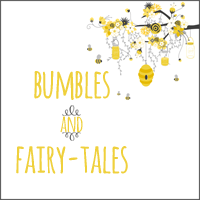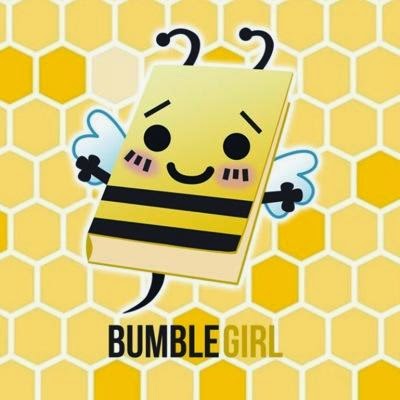by Nick Lake
Release date: January 6th, 2015
Published by: Bloomsbury USA Childrens
Genre: Young Adult Contemporary Thriller
Formats: Hardcover, eBook
Format read: ARC from the publisher.
SUMMARY
In four hours, Shelby Jane Cooper will be struck by a car.
Shortly after, she and her mother will leave the hospital and set out on a winding journey toward the Grand Canyon.
All Shelby knows is that they’re running from dangers only her mother understands. And the further they travel, the more Shelby questions everything about her past—and her current reality. Forced to take advantage of the kindness of unsuspecting travelers, Shelby grapples with what’s real, what isn’t, and who she can trust . . . if anybody.
Award-winning author Nick Lake proves his skills as a master storyteller in this heart-pounding new novel. This emotionally charged thrill ride leads to a shocking ending that will have readers flipping back to the beginning.
Shortly after, she and her mother will leave the hospital and set out on a winding journey toward the Grand Canyon.
All Shelby knows is that they’re running from dangers only her mother understands. And the further they travel, the more Shelby questions everything about her past—and her current reality. Forced to take advantage of the kindness of unsuspecting travelers, Shelby grapples with what’s real, what isn’t, and who she can trust . . . if anybody.
Award-winning author Nick Lake proves his skills as a master storyteller in this heart-pounding new novel. This emotionally charged thrill ride leads to a shocking ending that will have readers flipping back to the beginning.
GUEST POST
Tricksters
There Will Be Lies
is a story about a modern girl, Shelby Jane Cooper, but it’s also a story about
Coyote, the trickster god of myth, and a story full of tricks and lies, as the
title suggests.
The
story begins with Shelby, living at home in Arizona in a very protected
environment with her single mother. She’s home schooled, she doesn’t go out,
she’s been taught to fear men. Her father died long ago. Then Shelby gets hit
by a car and, lying on the kerb, sees a coyote appear between buildings. The
coyote says, “There will be two lies, and then there will be the truth, and
that will be the worst of all”. Shelby wakes up in hospital, her ankle injured,
and pretty soon her mom is whisking her out of there, and into a hired car with
all their belongings. She tells Shelby that her father is really alive, wants
to kill them, and can find them now that the hospital know their names. But
that’s just the first lie…
Meanwhile,
Coyote keeps appearing to Shelby, keeps taking her to a strange world called
the Dreaming where she is meant to kill a Crone who has captured the First
Child. You could think of it as an Arizona road trip thriller with SWAT teams
and guns and knives and cabins in the woods, crossed with a fairytale.
So Coyote is a pretty major figure in the story – he’s
effectively the guide who leads Shelby through the events of the book. And I
think that’s because I’ve been preoccupied with trickster figures for a long
time. Like Coyote, like Anansi the spider in West Africa, like Loki, like
Prometheus. They’re endlessly fascinating – they are liars, they play tricks,
but they also do things that benefit mankind. They are inherently ambiguous.
They steal fire from the gods, which is an act of thievery but also protects
man from wild animals, allows for cooking food; they scatter the stars across
the sky when they were meant to be arranged in rows, giving chaos to order;
they create Death, giving meaning to life; they separate the moon and the sun.
(Coyote does all of those in Navajo and/or Apache myth.)
And they lie. Which is appropriate for a book called There Will Be Lies.
But they lie in ambiguous ways, and their lying is not
necessarily malign. Often, in fact, the tricks and chaos they perpetrate end up
creating a better world. Coyote angers the River God in Navajo myth and ends up
causing the flood that destroys the Third World – but he is also the one who
leads mankind up the reed into the Fourth World, the one we live in now. Who
gives us language.
There’s an Apache myth where Owl is eating too many people
and Coyote resolves to stop him, not least so he can eat more people himself –
but also, genuinely, to help mankind, which kind of gets to the root of his
ambiguity. He stops Owl by lying. He issues a challenge – he and Owl must each
regurgitate their last meal, and the one who has been eating people will be the
only one allowed to eat people in future. But, Coyote says, they both have to
close their eyes. So they do, and Coyote vomits up some crickets, and Owl
vomits up some human meat, and Coyote swaps them round in their hands so that
when they open up their eyes Owl is confused, and Coyote has won.
He saves people from Owl, who has been preying on them, by
winning the exclusive right to eat people himself.
Pure Coyote!
Anyway, and I realize this a long blog post already, but I
have been wondering what it is that fascinates me about these trickster gods,
and I think I’ve worked it out. There’s an anthropological theory from Claude
Levi-Strauss about why trickster gods are trickster gods, and it basically says
that they don’t fit into any obvious category, which makes them intrinsically
shifty.
In Strauss’s framework, grazing animals are associated in
the shamanic society with Life, and predators with Death. Coyotes and crows,
which are carnivores but scavengers,
are neither predator nor prey, and so sit somewhere between Life and Death and
so, as tricksters, can mediate between the two. They are often messengers
between people and gods, between the world of the living and the world of the
dead.
This was an influential theory, but mostly debunked now – a
major flaw of it is that, actually, coyotes do sometimes act as predators,
hunting in packs, and bronze age Native American societies absolutely knew
this. BUT I do think there’s something in this idea of mediation, of standing
between, of negotiating between humanity and the sacred, which is so often the
role the trickster plays. It’s what Legba does – the loa of the crossroads in
Haitian vodoun, who is a recurring figure in my book In Darkness. If you want to communicate with the gods, with the
creator even, you can’t do it directly, you have to go through Legba.
(Interestingly, there’s an idea that stories like that of Robert Johnson selling
his soul to the devil at a crossroads owe as much to West African religious
beliefs as they do to the biblical devil – plenty of descendants of slaves in
the American South would have been familiar with the spirit of the crossroads.)
Anyway, I’ve been asking myself why I keep playing with
these trickster intermediaries – Legba, Coyote, and Crow (who appears in my
first book, The Secret Ministry of Frost).
And I think it’s because these figures are gateways between the contemporary
and the eternal, and so are books. In
my Printz acceptance speech I talked about XXXX Eliade, and his theories
of religion, and I’m going to talk about it here too – because one really
interesting thing about him is what he thinks about stories.
For Eliade, one of the universal features of religion around
the world is that it posits a realm that existed before ours, a before-the-fall
when gods walked the earth, or we lived in Eden, or there was no time, and
Coyote and Owl and the River God were real and among us. And for him, much of
what religion provides is a Sacred Return, a way to go back, temporarily and
more-or-less symbolically (depending how many hallucinogens you have taken) to
that sacred world.
Going to church, taking part in a coming of age ritual in a
smoky tent, being sent into the wilderness for forty days, fasting,
meditating, dancing – these are all kinds of Sacred Return.
And so, Eliade said, is reading
a book.
By picking up a novel, reading the words on the page, you
exit the present and enter a place and time that is outside of your immediate
experience, you enter the Sacred, the Dreaming, whatever you want to call it.
You are Shelby, being taken by Coyote into a space beyond space.
Coyote is Shelby’s guide, but our guide is the book in which
they both appear.
Books are our tricksters, for those of us who love them.
They mediate between us and the world of story.
They are a modern form of an ancient magic.
So, yes, There Will Be
Lies will trick you. Characters will lie to you. There will be twists. But
I guess what I like about stories is that, like the trickster Coyote, they may
disrupt order, they may be a source of misrule, but they always come together
in the end. And they always provide an escape from the ordinary world.
Yet there’ll be a twist before the end. In this one at
least.
GIVEAWAY
- U.S. only.
- Must be 13+ to enter.
- Must be 13+ to enter.
(Bumbles and Fairy-Tales will not be held responsible for any lost, damaged, unclaimed, etc. prizes.)
ABOUT THE AUTHOR - Nick Lake
Nick Lake is the much-acclaimed author of In Darkness, winner of the Michael L. Printz Award, and Hostage Three, which received three starred reviews and was named a Publishers Weekly, School Library Journal, and Boston Globe Best Book of the Year.
He is also
the Publishing Director for fiction at HarperCollins Children's Books UK.
Nick
lives near Oxford, England.
THERE WILL BE LIES Blog Tour Schedule
Monday, January 5- The Quiet Concert
Tuesday, January 6- Cuddlebuggery
Wednesday, January 7- The Book Addict’s Guide
Thursday, January 8- Writing My Own Fairytale
Friday, January 9- Just A Broke Bookworm
Monday, January 12- Ex
Libris Kate
Tuesday, January 13- Tales of a Ravenous Reader
Wednesday, January 14- Bookish
Thursday, January 15- Bumbles and Fairy-Tales
Friday, January 16- Andi ABCs































No comments:
Post a Comment
Thank you so much for stopping by and leaving a comment today!
If you are asking a question and you are a no-reply commenter,
please email me directly at thebumblegirl at rocketmail dot com or leave your email in the comments...
Thank you! and, as always, happy reading :)